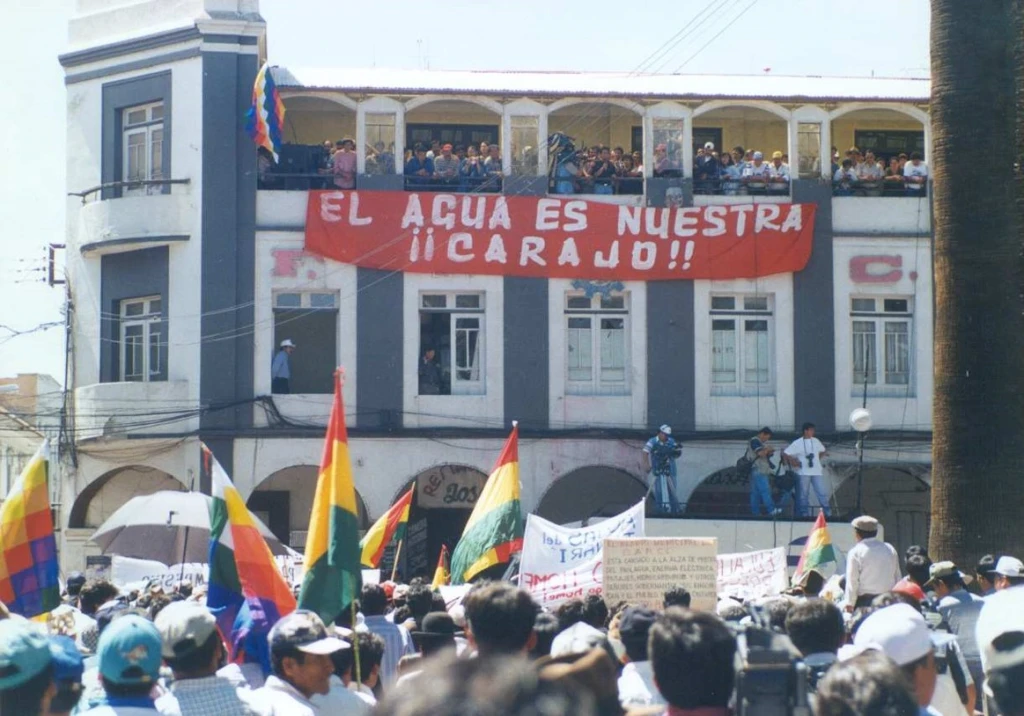
Water for All: Community, Property, and Revolution in Modern Bolivia



[We welcome Traci Brynne Voyles to the blog, to kick off a series this spring on Environmental Justice and Environmental Health. The video of her talk in the associated speaker series is available here.]
For the past decade and a half, I’ve been immersed in studying environmental disasters. I’ve focused on the ways they are shaped by various intersecting power structures: Continue reading
Last week’s Dream Course talk came from Candis Callison of the University of British Columbia, an expert on Science and Technology Studies, Indigenous Studies, and journalism. She argued that Continue reading
[Part 1 of this post appears here.]

A desolate, uncultivated countryside; a burning village; ruined houses; marauding soldiers—these are the first things visitors to the council chambers in 14th century Siena would have seen of Continue reading
On April 19, 2018, Stephanie Pincetl, of the California Center for Sustainable Communities at UCLA, presented her ideas on coupled urban metabolism at a Continue reading
Earlier this spring, Cindy Simon Rosenthal offered a series of three posts on the topic of “Cities and Our Future: Governance in the Anthropocene.” On March 6, 2018 (rescheduled
Continue reading
This is the third in Dr. Rosenthal’s three-part series on “Cities and Our Future: Governance in the Anthropocene.” Here are links to the first, and second posts. She will present her ideas at a panel discussion on the OU campus on March 6, 2018; here is the poster for the event.
In the late 19th century, a movement for municipal reform gained prominence across the nation, led by the emergence of Continue reading
Lately I’ve been thinking a lot about refusal and resistance. What is the difference between them? And what implications does this distinction have for individual and collective action? In part, my preoccupation reflects Continue reading

Pictured here is a “grolar,” one of the many arctic hybrids that are part of the “sexual revolution” going on in the Arctic due to climate change.
Last October, Oxford economist Kate Raworth wrote an op-ed criticizing the Anthropocene Working Group, an international team of scientists charged with determining whether the Earth has, in fact, entered a new geologic epoch. Raworth wrote that, whatever their intellectual merits, “[leading scientists] still seem oblivious to Continue reading
As the Anthropocene unfolds and becomes more manifest, will its inhabitants look back and blame their predecessors on Earth (us, and perhaps earlier generations as well) for bequeathing them a planet not fit for Continue reading
Does Mother Earth have rights? Can glaciers listen? Should invisible elves be consulted about development projects? If you find these questions fanciful, please bear with me. I may not convince you to answer them in the affirmative, but I think I can convince you to take them seriously. Here goes. Continue reading
The popularity of Lynn White’s argument shows that it is too easy to think that Christianity is inevitably opposed to an environmental perspective or that evangelicals will reject mainstream climate science. In a previous post, I looked at Continue reading
This post was supposed to be about the People’s Climate March. As I sat down to draft it, however, a headline about a different climate-related gathering caught my eye: tens of thousands of Pacific walruses have again Continue reading
You must be logged in to post a comment.